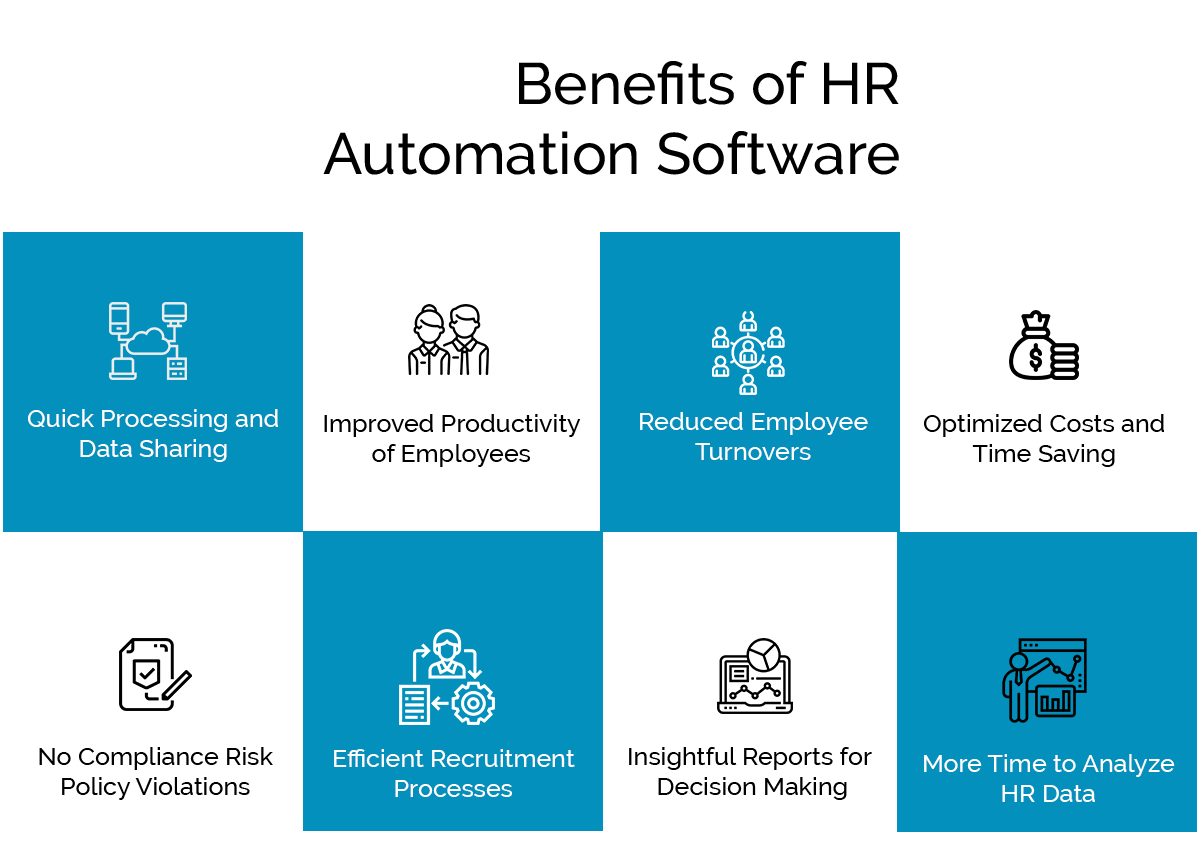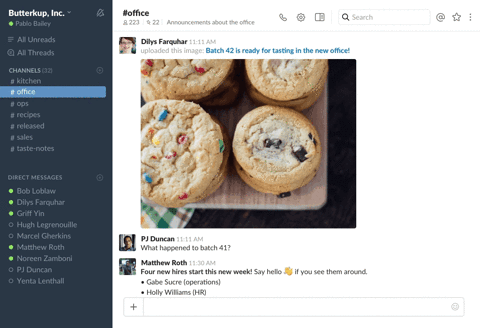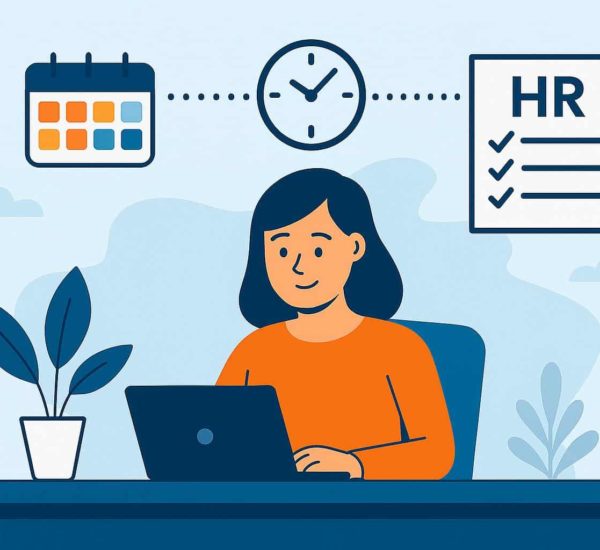The modern workplace is nothing like how it was 10 years ago. Forget the open floor workspaces and unlimited leaves. Workplaces now have autonomous and self-driven employees, innovative campaigns, and data-filled HR dashboards. For some companies, this looks like a shared Slack workspace, a bunch of apps to monitor work seamlessly, and a small team of dedicated employees.
Whatever your workplace looks like, it’s not tough to figure that it is constantly evolving. Newer measuring tools, newer strategies to work faster, newer management systems— change in the human resources department is inevitable.
As the year comes to a close, it’s important to look into the future HR trends that are taking companies by storm. Keep an eye out on these 10 emerging HR trends in 2021 and start adopting them to optimize your company’s everyday work.
Let’s modernize HR!
Top 10 Future HR Trends To Adopt Within Your Work Environment
1. Remote work
As more companies hire for talent over a location, many teams will be working remotely. In the past few years, remote teams have proven to be more efficient than in-office teams, costing less for the company and giving employees more freedom to work where they live. For HRs, remote teams allow you to hire a diversified workforce, cut costs on expenses like office space.
On the other hand, this flexibility allows employees to take care of their family responsibilities and choose a work environment and schedule that nurtures their productivity, making them more autonomous and increasing employee retention.

With the current technological advances, adopting remote work within your office is as easy as it sounds. Emerging apps made for work let you stay connected with your team, have meetings online for important discussions, and even monitor reimbursements that need to be made to employees on the other side of the globe.
Further reading: Managing Remote Teams: 5 Tips To Achieve Your Company Goals
2. Gig economy
We are currently breaking away from a traditional 9-to-5 economy of a lifetime career. Instead, the last few years have been slowly ushering in the gig economy, where the jobs are more flexible and temporary, with a lot of room to change. Adopting a gig economy means you are adaptable to the immediate needs your company has.
For instance, you may need more customer support at the end of the year, when people are buying more from your online store. With this gig mindset, your company is open to hiring a temporary customer support executive until the surge of shoppers dies down.

3. Automation
HR has a lot of mundane but equally important tasks to get done on a daily basis. But, some of these tasks can definitely be completed without needing your time. Setting up automated systems to manage some of your HR processes can help you avoid errors, increase efficiency and increase autonomy. Without including automation within your HR processes, you are likely to have 41% lower productivity, 35% higher costs, and 17% poor candidate experience.
For instance, you can set up automated attendance management systems within your Slack to allow employees to check in their time at work and to inform managers when they take a leave. With this, you won’t have to manually enter leave days and instead, have an automatically filled dashboard about employee timesheets and leaves.
But, automation isn’t just for attendance management. Tech has allowed companies to build apps to automate different parts of an HR’s job— from recruitment to onboarding to retention. In the future, as the role of an HR evolves, you must automate smaller processes so that you have enough time for strategy.

4. Slack to overtake other traditional software
If your company isn’t already using Slack, you’re definitely missing out! With over 12,000+ apps to supercharge the way you work and users as big as Airbnb and Dropbox using this smart communication tool, Slack is overtaking every other traditional work software.
With Slack, you don’t have to email your employees or resort to using group chats on apps like WhatsApp and Telegram. Instead, Slack lets you create channels for department/ project wise teams and even lets you directly message one employee.
You can customize your Slack workspace and add different kinds of apps to help you work better. What’s more, many software companies even use it when integrating their product with another company, making discussions seamless.
As we move into another year, it’s important to consider this work communication tool— if you haven’t already— to help you keep your team connected and engaged.

Further reading: Get More Done With This List Of The Best Slack Apps
5. Personal accountability
Gone are the days where you need to report every tiny update with your work to your manager. A culture of personal accountability means that your employees are passion and self-driven in your company, doing what it takes within their role to contribute to their company’s success.
As a modern HR, you need to increase personal accountability. You can start by ensuring managers are not trying to handhold their way into micromanaging every project on the employees’ plate. Instead, they should allow employees to take full ownership of the project and let them figure things out on their own.
You can also inculcate personal accountability by encouraging employees to learn at work, with events and courses that can be fully covered by the company.
6. Prioritized employee engagement
Unlike before, employees are taking stock of their worth in a company, willing to jump ship when necessary. But, this doesn’t have anything to do with better pay. One study found that 74 per cent of younger employees would accept a pay cut for a chance to work at their ideal job. So, how can you successfully retain your employees?
Employee engagement is key. A well-engaged employee is happier and healthier, sure to work quicker and better.
But, according to Gallup’s 2017 research, 85% of employees are not engaged in their workplace. In the upcoming year, one of the emerging HR trends you must focus on is engaging your employees and create a fulfilling work environment.
Not sure where to start? Think of different employee benefits you can set up or host fun team-building events on a weekly or monthly basis.
7. Continuous performance reviews
The traditional annual performance reviews are an HR trend for the previous decade. Instead, this highly formal event is being replaced with a continuous conversation between employee and manager. This is done in the form of demo days and one-to-one meetings about ongoing work and bottlenecks in their path.
This shift means that employees who are growing fast in the company can be fairly compensated for their achievements. And employees who are falling short can have frequent discussions with their managers to figure out ways to improve. Continuous performance reviews are also a mark of openness within the company and a sign of success.
8. Standardized onboarding
Onboarding your new hires is a crucial part of ensuring these employees can, in turn, deliver successful results for the company. Unfortunately, many companies don’t have a standardized process for their onboarding. And this is reflected in the lack of clarity in some aspects of the company’s product or service. Most employees spend months without a clear understanding.
A standardized process allows you to deliver a comprehensive understanding of your product/ service. This ensures you don’t miss out on even the smaller details. You can efficiently train your new hires and provide them with a productive first week. A well-documented process or checklist allows you to have more clarity in where it can be refined, ensuring quality onboarding experiences.
You can read our guide to using Slack for onboarding to help you set up an automated and standardized onboarding experience for your new hires.
9. Strategic HR
Strategic HR is managing HR functions and mapping your future steps. In a way that supports the long-term business goals of the company. This sounds like an abstract idea but not when you get down to it. Being strategic as an HR is about taking small steps. Small steps to plan alongside your bigger company goals.
For instance, if your team is planning to revamp the app’s design in the future. You may need to hire more front-end developers soon if you are understaffed for such a huge project.
Strategic HR is one of the most important HR trends in 2021. Because it helps you look ahead and smartly plan to grow your company successfully. Keeping your HR plans on par with the larger company roadmap, understanding the needs of the company, and setting up analytics is important. It allows you to develop winning strategies based on the data you’ve collected and the future requirements the team has.
10. Data-driven HR
HR is slowly evolving to be more precise and reason-based. Smart HR apps (think Albus, OfficeAmp, Polly, etc) have created opportunities to collect valuable data. Data can be used to make informed decisions within the organization. It is one of the most important modern HR best practices.
You could be using a feedback collection tool that lets you know what changes employees want in the organization. Or an employee monitoring software that tracks the growth of an employee through their time in the company. These smart apps have made data collection easier, revolutionizing modern HR.
With more apps being introduced in the market, this emerging HR trend takes priority next year. Having these analytics in place allows you to quickly understand the data trends to make better hiring decisions. It also helps you improve employee experience, increase retention, and boost employee productivity.
What future HR trends are you looking forward to adopting in 2021?



